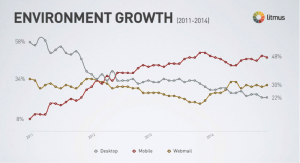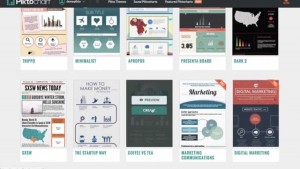Regardless if you’re searching for a job, seeking a promotion, or growing your business, building a personal brand can help you achieve these goals. More importantly, having your personal brand makes a great first impression and prevents others from tarnishing your good name. With that in mind, let’s dive deeper into the benefits of having your personal brand on social media and how you’ll be able to effectively create one.
Why You Need to Brand Yourself on Social Media
Do you really need to have your personal brand on social media? Why, yes — yes you do. Here are the reasons why.
Makes a strong first impression when introducing yourself.
Even if you have a million customers, there are still people discovering you for the first time (you hope). If you have a brand, you can make a great first impression since it helps determine how you want to be perceived.
For instance, let’s say someone shares a piece of content you wrote years ago. That may sound great. But, what if you hadn’t yet discovered your voice or strengthened your writing skills? That’s not going to leave a great first impression.
But, if people are sharing your awesome, high-quality content, that’s going to definitely build-up your personal brand.
Establishes you as a legitimate, authority figure.
In the world of “fake news” it’s more important then ever to prove that you’re an actual person. Even more, your social media brands demonstrates that you’re an authority figure. As such, it assures others that you’re more than capable of tackling a job, speaking engagement, or providing advice.
Shows how you can provide value and what makes you different.
This is key. People want to know how you can provide them with value. If you cannot put why you are of value in a couple of sentences, companies will often turn elsewhere for help with their projects.
Additionally, branding differentiates you from other brands in your industry. For example, there are a million pizzerias out there. But, what makes your pizza stand out? Is it because you used a family recipe that’s been passed down? Is it cooked in a brick oven? Or, is it gluten free?
Counters newsjacking and negative reviews.
Newsjacking isn’t something you probably have to be concerned with since it usually applies to extremely well-known people. However, if you have an established brand, it guarantees that your audience won’t approve of this tactic.
Furthermore, having an established social media brand can help counter any negative reviews you may receive. While it’s likely you will have some bad review here and there it does protect you from those fake and malicious reviews.
Let me also add that negative reviews can be beneficial. They can help you improve your business and strengthen relationships with your audience. However, some people like to cause trouble and blast you for little reason. With a consistent brand, your audience can tell the difference between legit and fake reviews.
Helps you engage with your audience.
Alfred Lua explained this perfectly on the Buffer Blog. Lua states that engagement is the future of social media because social media users are preferring more one-on-one communications. This is because of chatbots and using social media for customer service.
Let’s not also forget that algorithms are now prioritizing engagement. So, the more engaging content you share, the more interesting you appear. And, when you seem interesting, social media channels will show your posts to more people.
Building Your Personal Brand on Social Media
Are you ready to create your brand on social media? Then let’s get the party started.
Create your social media persona.
First things first. Determine your values, passions, and key traits. You’ll use these to build an authentic voice when creating and sharing content. It will also help guide you in how you’ll engage with your audience.
You should also jot down a list of relevant keywords and phrases that describe you and your brand. This will help you describe yourself and tell your story. These keywords will help search engines find you.
Don’t forget to also get a professional headshot, create a unique signature, and include a link to all of your contact information, social media accounts, and website. Make sure that you’re consistent across the board. For instance use the same tone and headshots on all of your social media channels.
Choose networks that support your brand image.
There are hundreds of different types of social media channels out there. Instead of attempting to build your brand on each one, focus only one the networks that fit your brand and where you audience is. For example, if you’re an accountant, you should focus on channels like Facebook and LinkedIn as opposed to Snapchat.
Equinet has a handy list of the pros and cons of the top social media networks if you need help determining which platform to use.
Build your online presence.
Secure the URLs and social usernames for your personal brand before someone else does.This is especially true if you have a common name.
If the URL and usernames are already taken use dashes, underscores, or numbers. You can also go back to your list of keywords. If you’re a photographer named Joe Smith, then try to obtain something like Photographer Joe or Joe Smith Photography.
You can use tools like knowem and NameChk to check the availability of your name across hundreds of social communities.
Make sure that the URLs and social usernames are the same across the board to prevent any confusion.
Provide valuable and shareable content.
The best way that you’re going to build your brand’s reputation is by creating and sharing content that your audience finds entertaining or useful. It should also fit your brand. For example, if you’re a serious professional, it probably wouldn’t make sense to share a ton of memes.
I would suggest that you use a lot of visual content. Visual content not only reinforces your marketing messages, it also encourages more engagement.
Create a content calendar.
As mentioned several times, when it comes to social media, you need to be consistent. Posting sporadically doesn’t encourage relationships. While you’re not sharing content or engaging your audience, your competitors are.
Having a content calendar ensures that you regularly update your social channels with that amazing content you produced.
How often should you post?
Coschedule examined 14 different studies and came-up with the following suggestions:
- Facebook – 1 post per day.
- Twitter – 15 tweets per day.
- Pinterest – 11 pins per day.
- LinkedIn – 1 post per day.
- Google+ – 2 posts per day.
- Instagram – 1-2 posts per day.
The good news is that you can use tools like Buffer, Zapier, and IFTTT to automate your social media posts. Just make sure that you schedule the time to interact with your audience personally by leaving comments, asking questions, or sharing other types of social content.
Conclusions About Your Personal Brand
It’s imperative that you build your personal brand on social media. It puts you in control of your image and content so that you can effectively reach your audience. Once you do, you’ll be on your way to becoming an influencer who can take their brand to unprecedented levels.
Digital & Social Articles on Business 2 Community
(24)





